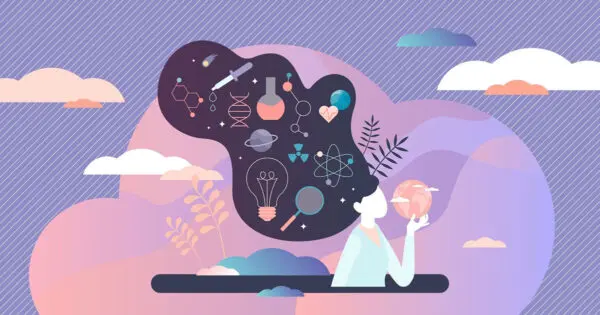What is an Ibogaine Grey Day and Will I Have One?
Ibogaine is More than Visions
Ibogaine is a complex alkaloid originating from the root bark of the West African shrub Tabernanthe iboga. Iboga is known for its use among the Bwiti people of Gabon for celebrations, spiritual awakening, healing, initiation rights, and practical uses such as staving off fatigue and hunger.
Since the 1960s, the ibogaine alkaloid has been used in the western hemisphere for substance use disorders, mental health disorders, and psychospiritual reasons. Ibogaine has a reputation for being a long, visionary experience that can provide deep insight into one’s most inner challenges in life. It also has a reputation for being uncomfortable and possibly dangerous, hosting a wide variety of side effects and risks.
Ibogaine is classified as an oneirogen, meaning it produces a “dream-like” state. While ibogaine does have an impressive “waking dream” state, it also has a substantial period of unrelenting reflection that lasts longer than the initial visionary period. All of this is followed by what the ibogaine industry has coined as the “grey day.”
What is a grey day, will you have one, and why is it important to sit through it?
What Ibogaine Feels Like
Ibogaine experiences are unique and vary from person to person. However, most people describe the experience as a deep reset. This reset comes from reorganizing the hard drives of our brains. Ibogaine often gives back agency to a person while liberating them from false self-identifications and experiences that have caused guilt and shame. Read more about what ibogaine and what the dream-state feels like here.
The Brain Reset
In one study regarding the experience of ibogaine, 90% of participants had a hard time putting their ibogaine session into words. While insights are unique to the individual, the general process of ibogaine can be described with a simple thought experiment.
Imagine that the systems of our brains are highways. These highways are freshly paved and have direct routes to and from where they need to go. However, with life, trauma, sadness, habitual behaviors, and choices, these roads start to become roundabouts. As a result, we can get trapped in cyclical behavior and loops. As we keep going and indulging in the same destructive behavior, our roundabouts may then develop potholes.
Most drivers know that one spot on their way home or to work where there is a pothole in the road. They may frequently tell themselves, “I’m not going to hit that pothole today,” but then they forget to swerve and find themselves promising that they will avoid it the next day. This can be compared to how a person feels and operates before doing ibogaine.
Ibogaine unwinds these roundabouts effectively interrupting our destructive habits. Next, ibogaine re-paves the reconstructed highways and then fills in the potholes. In a matter of a few days, we can find ourselves outside of the habitual loops, trauma responses, dependencies, and compulsive behavior we might have been engaging in. However, one important thing to remember is that in the case of the freshly paved roads and the filled potholes, the fresh pavement is still drying, and the potholes are filled with loose soil. If we don’t take responsibility for the areas of our lives we need to work on, if we don’t apply the lessons we learn from ibogaine to the days moving forward, it is not too difficult to muddy the new pavement and tread on the freshly laid soil. It only takes a few missteps for that pothole to re-form and for the old pathways to emerge and become the dominant pathways again.
Some people who use ibogaine say that they can feel their brain being fixed during the experience as if they can hear molecule-like construction workers tinkering around. Others say that they feel this reset after they come out of the experience.
The Ibogaine Process
Ibogaine is known for its waking dream state, but this is only the first stage of the experience. The visionary period is followed by a long period of reflection. The reflection period may offer fewer cinematic vignettes and more thoughts and internal monologues.
Some people describe ibogaine as years of therapy in one experience. However, therapy is hard work. It may be the following stage where most of this work is completed. As the reflection period wears off, a period where everything has to settle for the reset to start begins. This settling period is what the industry calls a “grey day.”
What is a Grey Day?
At some point during the reflection stage, the harsh side effects of ibogaine such as ataxia and the inability to walk or move around will start to wear off. However, it’s possible that drinking water or eating will still not be possible. Some people may throw up or not be able to take more than one or two bites of food (pro tip: always make sure something light, like watermelon, is around when coming out of an ibogaine experience).
Slowly, the period of reflection will morph into what the industry calls a “grey day.” There is no polite way to put it, grey days are extremely challenging. However, most ibogaine providers agree the grey day is crucially important to the process. Sitting through something so unpleasant has merit and benefits. Also, some ibogaine providers believe that what comes up on a grey day is what someone is liberated from in the days after. From this perspective, this is a necessary process for a person to go through to fully heal.
Personal Grey Day Reflections
People experience grey days differently. Some people have said their thoughts go in circles and others describe a loud ongoing internal monologue. Some people are angry, sad, manic, hopeless, irritable, numb, and there are even reports of extreme boredom. A wide range of emotions can come up, and sometimes the reason someone sought out treatment is exacerbated during this time (i.e., OCD, depression, anxiety). Insecurities or intrusive thoughts may also dominate some of this time. Some people want to be left completely alone and others want constant support. This is an intensely vulnerable and emotionally challenging time. It is imperative to be in a treatment center that can provide support.
Nicole*, who did ibogaine in the summer of 2018, describes her grey day as crying for 18 hours, convinced she needed to call members of her family and repent for her perceived failures. She said she begged the staff for her phone, but they insisted that she sleep before calling anyone. Once she slept, the clouds parted, and the devastation, feelings of failure, and guilt she had mulled over dissipated. She said she’s glad she didn’t call anyone that day. Nicole described that the day after her grey day was day one of a multiple-month reset that changed her life for the better.
Laura*, who completed her ibogaine treatment in late 2019, described ruminating on manic and intrusive thoughts on her grey day and convinced she needed to leave the treatment center, book a flight, and rush home to explain her actions to people. The following day, after waking up from some sleep, she remembers “it wasn’t that I needed forgiveness from everyone else, it’s that I needed to forgive myself. After my relentless grey day, something shifted. I woke up the next day and realized I was glad I had people to apologize to at all, I didn’t feel guilty, I didn’t feel shame, I felt grateful and free.”
How Long Will the Grey Day Last and Will I Have One?
There is no way around it. Nearly every single person goes through some version of a grey day. Some are much longer or harsher than others, but it is unique to each experience and what someone needs to get out of it.
Aside from the emotional lows of a grey day, most people are tired but have significant insomnia and are unable to sleep. Their body might be in some discomfort from lying down for so long. People are tired of being in bed but might not have the strength to get up and take a walk. They haven’t eaten for a couple of days, but might not be able to hold down food. Some people still feel slight effects from the ibogaine whether it be light sensitivity, auditory hallucinations, or the presence of ibogaine in their thoughts and mental state. Most people are ready for the experience to be done and get some sleep, but the grey day may prevent that.
The amount of time a grey day lasts varies, but for most people, it is a full day. Some ibogaine providers point out that a small number of people will get a “double grey day” or something that lasts quite a bit longer than a single day. If someone feels stuck in their grey period, sitting outside in the sun, taking walks, hydration, and nutrients (if holding down fluids and food is not an option, an IV bag should be administered), and sleeping should help.
It’s easy for clients to feel like they did something wrong, the medicine didn’t work for them, or feel disappointed as they expected to feel better after their experience. However, considering a night of sleep still hasn’t occurred, the grey day is simply a necessary phase of the acute ibogaine experience and a phase we should talk about more often. Ibogaine is much more than the dream state.
After the Grey Day
While the length of time of a grey day varies, as well as the emotions that come up, the grey day is temporary. It will end.
It’s important to remember ibogaine gives a person what they need and not what they want. Once a person gets to sleep and is able to hydrate and intake nutrition, they usually bounce out of the grey day and are onto the start of a lengthy integration process. Some people will quite literally bounce out of their grey day and hit the ground running, and some people will have an unfolding that takes place over several days. Every process is unique, and some people don’t completely make sense of their experience for a few weeks. Don’t worry, this is normal!
The most important thing to take away from all of this is that the grey day is a normal part of an ibogaine process. It is deeply important to the resetting mechanism specific to an ibogaine experience. Accepting the grey day and not trying to drown it out with social media, TV, or asking a center for access to benzodiazepines, etc., will significantly benefit your process. Ibogaine in itself is one of the most profound tools this planet has to offer, but there is no way around the hard parts. The only way to the other side — to the intentions and goals a person has set — is through the grey day.
*last names omitted for anonymity








